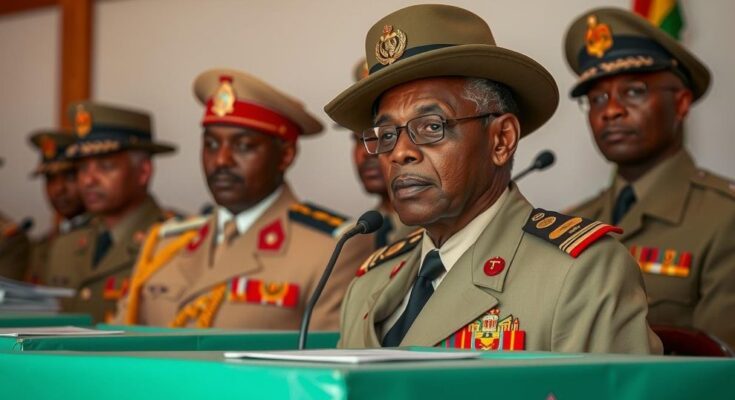Chad conducted elections on Sunday after three years of military rule, but the opposition boycotted the polls, denunciating them as fraudulent. Marshal Mahamat Idriss Itno’s government faces allegations of electoral manipulation, with concerns raised about disappearing ballots and media restrictions. The elections are crucial for Chad’s political future amid ongoing security threats and criticism of the ruling regime’s autocratic tendencies.
On Sunday, Chad held its legislative, provincial, and local elections, which the government presented as a concluding phase of a political transition following three years of military rule. Opposition parties, however, boycotted the elections, which predominantly favored candidates supporting Marshal Mahamat Idriss Itno, who ascended to power after a military coup in 2021. Itno’s leadership was legitimized by a disputed presidential election last May, widely criticized by opposition leaders as fraudulent.
Opposition figure Succes Masra encouraged the public to abstain from voting, asserting, “It is better to stay at home” as he condemned the current electoral system as one characterized by deception and unfair practices. The Democratic Party of the Chadian People (PDPT) raised concerns regarding electoral integrity, claiming that over a thousand ballots had mysteriously disappeared. Furthermore, the elections are being conducted amid security threats from Boko Haram and growing tensions regarding foreign relations with France and the conflict in Sudan.
Polling took place under the watchful eyes of both domestic and international observers, amidst complaints regarding media restrictions and a near blackout due to a protest strike by online journalists. The elections mark the first legislative assembly elections in over a decade, as numerous previous attempts had been postponed due to various crises, including jihadist attacks and the pandemic.
The political landscape in Chad has been tumultuous following the death of long-time leader Idriss Deby Itno in 2021, which saw his son, Mahamat Idriss Itno, take control amid a military transition. The country has grappled with issues of governance and opposition suppression, leading to escalating tensions and calls for reforms. The disputed legitimacy of the elections has further complicated the promise of establishing a democratic rule, and political opposition faces significant challenges in mobilizing against an increasingly autocratic regime.
Chad’s elections represent a critical juncture in its political evolution post-military rule, characterized by widespread opposition boycotts and allegations of electoral fraud. The absence of a robust media presence during the elections raises concerns about transparency and democratic integrity. Observers will be keenly watching the outcomes of these elections as they may significantly influence Chad’s political trajectory and the potential for a return to democratic governance.
Original Source: www.barrons.com




